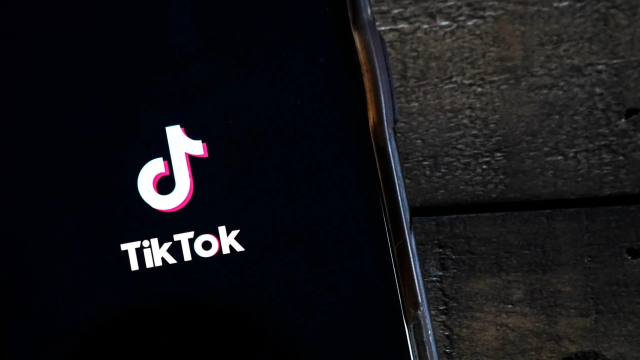Utah’s governor and attorney general are adding their names to the lengthy list of mostly Republican lawmakers gunning for TikTok. This week, Utah AG Sean Reyes sued the company for allegedly creating casino-inspired addictive features that harm children and for misleading parents about its commitment to safety on the platform. TikTok’s infinite scroll and “For You” recommendation algorithm, Reyes alleges, lures kids in and leaves them “unable to escape.”
“We will no longer tolerate TikTok misleading parents that its app is safe for children,” Utah Governor Spencer Cox said in a statement. “Social media companies must be held responsible for the harms they are causing.”
The 60-page complaint, filed in state court Tuesday, attempts to link TikTok’s supposedly addictive and harmful features to a reported uptick in teen depression in the state. Reyes cites recent research released by the state’s Department of Health and Human Services which estimates that 76% of the state’s middle and high school-aged children this year reported symptoms of depression. 17.6% of those students surveyed have reportedly considered attempting suicide.
The suit accused TikTok of violating Utah’s Consumer Sales Practices Act by knowingly creating an addictive platform that uses slot machine-inspired “variable rewards” to keep users on its platform. These design choices, the suit alleges, are particularly damaging to young users because they can lead to “habitual dependence” and exploit kids’ “not yet fully developed brain[s].” The suit goes on to say AI-powered content recommendations (aka algorithms), which aren’t unique to TikTok, can lead users to be “trapped” in filter bubbles or sent down a meandering rabbit hole of potentially harmful content. On top of that, the suit attacks the company for allegedly misrepresenting the harms its platform poses on its Community Guidelines and in public statements.
In some cases, the suit argues excessive TikTok use can lead to physical harm. Specifically, the suit claims excessive scrolling can prevent young users from getting enough sleep which can potentially lead to developmental disruptions for young people. These same concerns were echoed in a recent American Psychological Association report.
“The result (and intent) of these manipulative tactics is that young consumers become hooked, unable to escape using the app,” the suit reads.
When reached for comment, a TikTok spokesperson told Gizmodo the company maintains a variety of “industry-leading” safeguards to protect young users which include a recently added 60-minute time limit for users under 18 and parental controls for teen accounts.
“We will continue to work to keep our community safe by tackling industry-wide challenges,” the spokesperson said.
Those safety features don’t cut it for the Utah lawmakers. The lawsuit characterized TikTok’s recent safety efforts as “minor tweaks” that don’t address its underlying addictive design features. The complaint builds on similar lawsuits lodged against TikTok by Indiana and a Maryland school district. It also comes on the heels of a recently passed Montana law banning the app in the state for alleged national security concerns. 18 Republican attorneys general from across the country recently signalled their support for the legally dubious Montana ban in recent court filings.
Why TikTok?
So, does Utah have a point? A growing corpus of academic research in recent years has convincingly linked excessive internet use to increased rates of depression and mental health issues among teens. Though some question the reliability of those studies, they’ve drawn the attention of major mental health organizations like The American Psychological Association and US Surgeon General Vivek Murthy who recently warned there are “ample indicators” showing social media poses a “profound risk of harm.”
Still, the research on social media harms does little to explain why Utah and other states would single out TikTok in particular. The supposedly addictive design features listed in the suit, such as recommendation algorithms and infinite scrolling, have become commonplace on a variety of social media platforms. TikTok’s supposedly “misleading” statements about its safety commitments could similarly be lodged against Instagram or YouTube.
In reality, the suit looks like part of a larger mostly GOP-led effort to penalize or ban the app due to suspicions surrounding its Chinese ownership. Demands to ban the app on the federal level reached a fever pitch in the spring but have since cooled down considerably. But with a major election around the corner, prominent Republican lawmakers like Florida Governor Ron DeSantis and former Vice President Mike Pence have been trying to resurrect those fears. In other words, don’t expect the TikTok fear-mongering to fizzle away anytime soon.
